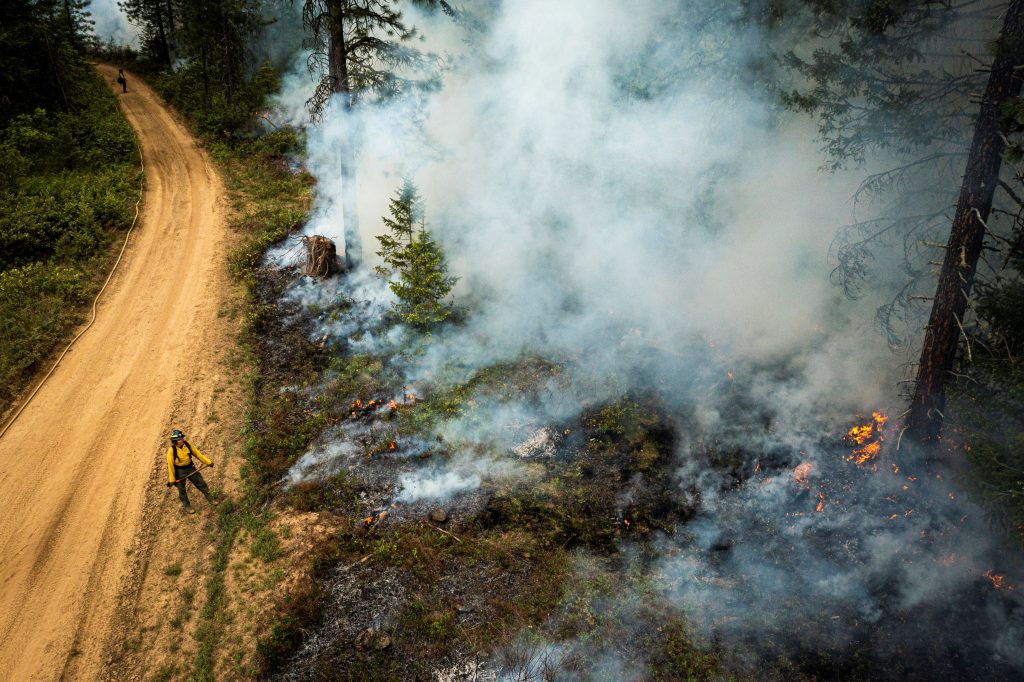Can ecological forestry improve public health outcomes? The Graubard Fellowship supports a case study in the Central Sierra
by Claire Schollaert
As wildfires become more frequent and severe due to climate change and postcolonial fire management practices, there is growing consensus among the forest management community that prescribed burning should be used on the landscape to reduce excess fuels and mitigate extreme wildfire risk. Despite the benefits of prescribed burning to forest restoration goals, these managed fires still produce smoke, which may impact the health of surrounding communities.

With the support of PCC’s Graubard fellowship, I was able to explore this tradeoff by evaluating the air pollution impacts of unmitigated wildfire relative to the potential effects from strategic forest management practices under different treatment scenarios designed to reduce long-term risk of large, high-intensity wildfire under changing climate conditions.
Focusing on a specific landscape in the Central Sierra, this project brought together researchers and practitioners from the forest and fire management and the public health sectors to develop an integrated methodological framework that we used to evaluate the air quality and health impacts of proposed forest management scenarios. While the analysis was carried out for a specific landscape within the Central Sierra, the methodology can be applied to other landscapes across the broader western U.S. where forest management planning is ongoing and changing climate conditions may impact future forest and fire dynamics. Not only did this award allow me to grow my analytical skills, it also provided the opportunity to participate in research collaborations at the intersection of public health, forest management, and climate. Addressing the ecological and societal impacts of the wildfire crisis demands a transdisciplinary approach, requiring researchers and practitioners to think and collaborate in novel ways. The opportunity to hone my transdisciplinary research skills, granted through this award, has proved invaluable to my development as a scientist and is something I will carry with me in my future work as a Postdoctoral Scholar at UCLA, where I will expand my work to examine the smoke impacts associated with future forest management and climate scenarios across the broader western U.S. landscape.
Claire Schollaert, a former graduate student in the UW Department of Environmental and Occupational Health Sciences, leveraged her Graubard Fellowship to examine the smoke exposure tradeoffs associated with forest management activities intended to mitigate extreme wildfire risk in the Central Sierra, CA
